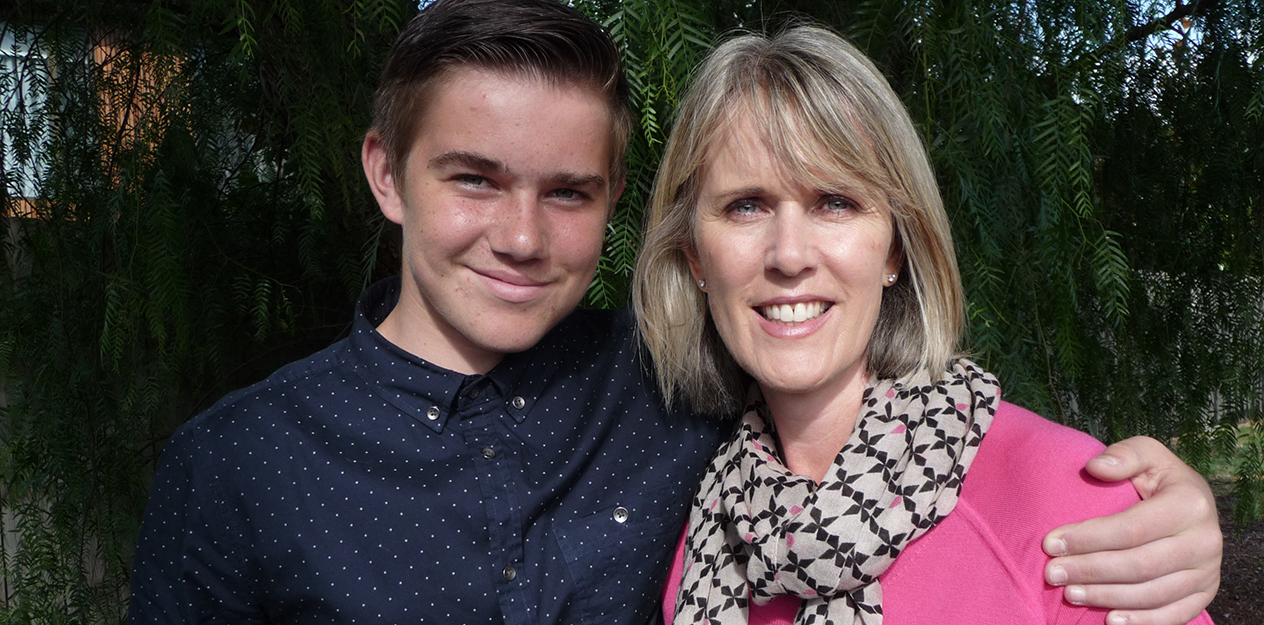My son Sam is now 18 years old. He was diagnosed with JIA just after his 13th birthday, writes Buffy Squires
My son Sam is now 18 years old. He was diagnosed with JIA just after his 13th birthday.
Seeing your previously healthy and sport-loving son crawling down the hall just to get to the bathroom is heartbreaking. The impact on our whole family was enormous. You just can’t imagine the changes you suddenly have to make. One minute we were dealing with all the normal teenage activities and the next we had an occupational therapist talking to us about putting grab rails and mobility aids through our house. The whole future you envisage for your child changes in a split second.
Sam complained for a few weeks of sore knees but like most mums vying for that “Mum of the Year trophy” I pretty much ignored him, figuring it was too much sport or growing pains or something along those lines.
It was the Queen’s Birthday long weekend and he had a weekend off sport so I thought: ‘OK, this will give his knees a rest and a chance to settle down and everything will be fine.’ We went for a short walk as a family on the Sunday and after about 10 minutes he said to me “Mum, I can’t walk anymore, my knees are killing me”. We headed home where he lay down on the couch and after an hour or so he got up and discovered that it wasn’t just his knees anymore, the pain had now spread to his ankles and hips.
The next morning I took him up to our GP who ran a range of blood tests and told me she wanted to see him again on the Friday, but if it got worse before then, to take him to the ER. On Wednesday morning he woke up and the pain had also moved to his wrists, shoulders and elbows. We headed out to the Monash Hospital where we began what would be a long relationship with the wonderful paediatric rheumatology team there.
Sam was officially diagnosed with JIA two weeks later and started on methotrexate that day. His pain got worse and worse and he was admitted to the hospital for a week for further testing. After ruling out a lot of other nasties, he was eventually diagnosed as having amplified musculoskeletal pain syndrome.
To be honest, this floored me more than the diagnosis of JIA. I really felt that they didn’t know what he had, so they were just pulling something out of thin air! The AMPS was harder to deal with in many ways than the JIA. With JIA I felt we had a well-trodden path to follow while with the AMPS it felt very hit and miss.
We saw a pain specialist through Monash and Sam was put on a lot of different drugs with various success. Eventually we found some websites and read a lot of information on pain and educated ourselves about what pain is and the importance of movement. Sam did a lot of hydrotherapy and got moving and strengthening his body once again and slowly we began to see improvement.
Sam missed the majority of the second half of year 8 and a similar amount of year 9 before finally finding the right combination of medications that worked for him. The burden of the pain was enormous but missing out on school, playing sport and contact with his friends was even harder. The medication he was on also made him put on a lot of weight and some of the kids at school could be cruel.
I was no longer able to work as Sam needed my support at home for both his day to day care as well as his multiple appointments, so I approached Musculoskeletal Australia about volunteering half a day per week. To be honest it also gave me a much-needed break from the stresses of suddenly becoming a full time carer! I started working on the Help Line which not only gave me vital information about JIA but gave me access to a knowledgeable nurse as well as a number of other volunteers who could share their own stories with me.
Along with a great rheumatology team and the correct medications, Sam works hard on his fitness to ensure he remains well enough to do the things he wants to do. He also needs to pace himself which, like many teenagers, he does with varying degrees of success.
Although he still has challenges that other teenagers just can’t imagine, he’s now studying full time at uni, has a part time job and is able to participate fully in life – just as any 18 year old should be doing.
Buffy Squires (pictured above with her son, Sam) is the MSK Kids program manager. This blog was originally published on Musculoskeletal Australia’s website.


